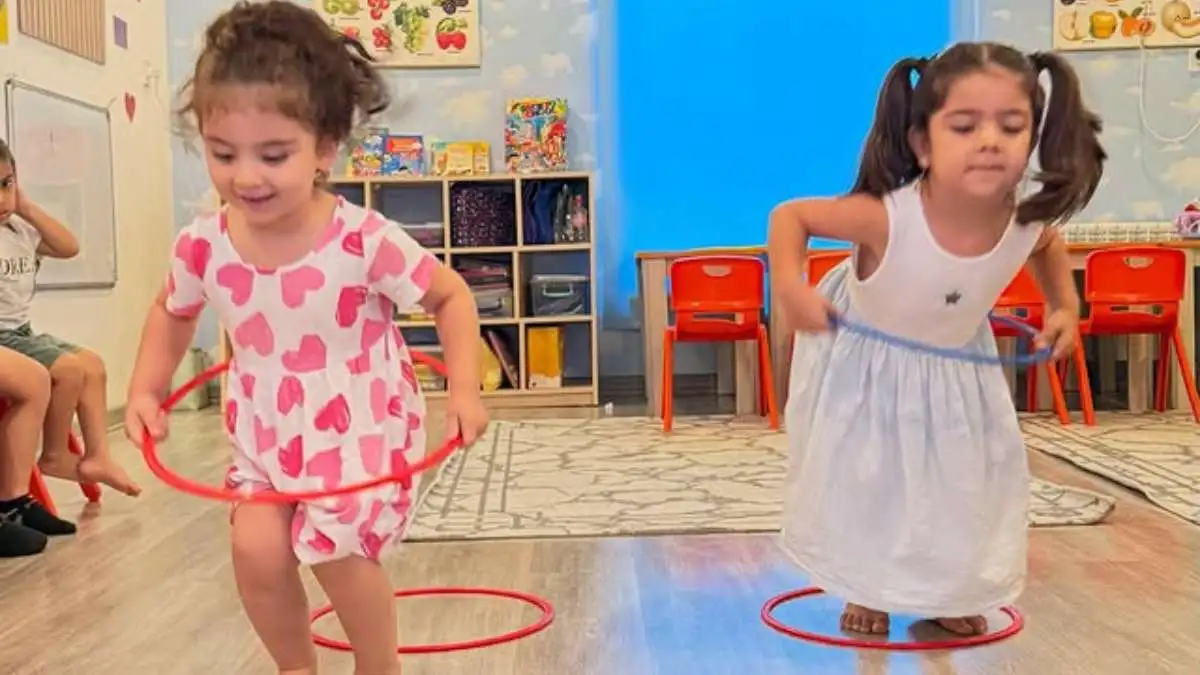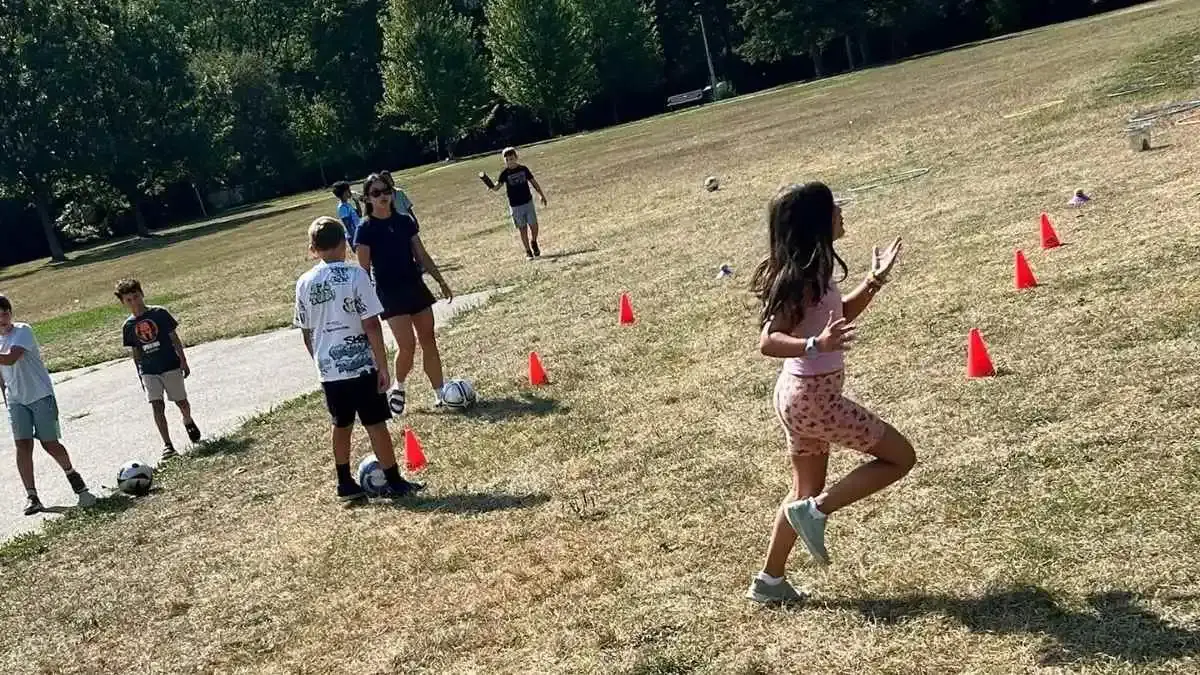School is not only a place for academic learning but also a space where kids can develop social skills, creativity, and teamwork. School games provide the perfect opportunity to combine fun with education, allowing children to learn important lessons while enjoying themselves.
If they’re engaging in physical games during recess or playing interactive learning games in the classroom, school games can be a valuable part of a child’s development.
Here’s a look at some of the best school games for kids, divided into physical games, classroom activities, and team-building games, all designed to keep children entertained, engaged, and learning.
Physical School Games for Kids:
Physical games help kids develop their motor skills, coordination, and overall fitness. These games are typically played during recess, gym class, or outdoor activities and encourage teamwork, exercise, and friendly competition.
1. Tag (Freeze Tag)
A classic game of tag involves one child being “it” and chasing the others to tag them. Once tagged, the player has to freeze until another player touches them to release them. Freeze tag adds an extra twist by requiring players to remain still until they’re saved, adding an element of strategy and teamwork.
Skills Developed: Agility, teamwork, speed, and strategic thinking.
2. Relay Races
Relay races can be organized with various challenges. Players divide into teams and each child takes turns running a set distance before passing the baton to the next runner. It’s a great way to build teamwork and boost physical stamina.
Skills Developed: Teamwork, coordination, and communication.
3. Capture the Flag
Capture the Flag is a popular team-based outdoor game where two teams compete to capture the opponent’s flag while defending their own. Players must strategize, work together, and use speed and stealth to win.
Skills Developed: Strategy, teamwork, problem-solving, and physical fitness.
4. Dodgeball
In dodgeball, players throw soft balls at the opposing team while avoiding getting hit themselves. This game is an excellent way to improve hand-eye coordination and agility, while also encouraging teamwork and fair play.
Skills Developed: Agility, hand-eye coordination, and teamwork.
5. Simon Says
This simple yet fun game involves one leader (Simon) giving commands, and players must only follow the commands if they begin with “Simon says.” If the leader gives a command without saying “Simon says” and players follow it, they are out. It helps children develop listening skills and focus.
Skills Developed: Listening, attention, and concentration.
More Suggested: 15 Best Tourist Destinations
6. Hula Hoop Contest
Give kids a hula hoop and challenge them to see who can keep it spinning the longest. This game encourages balance, coordination, and fitness.
Skills Developed: Balance, coordination, and physical fitness.
7. Kickball
Kickball is similar to baseball but is played with a rubber ball. Kids kick the ball instead of hitting it with a bat and run around bases just like in baseball. This game combines elements of soccer and baseball, offering both physical activity and teamwork.
Skills Developed: Teamwork, coordination, and endurance.
8. Jump Rope Challenge
Jump rope games can be played individually or in groups. Kids can challenge each other to see how many jumps they can do in a row or organize jumping games where they count in rhythm, encouraging teamwork and physical fitness.
Skills Developed: Coordination, cardiovascular fitness, and rhythm.
Classroom Games for Kids:
Classroom games are an excellent way to enhance learning and make studying fun. These games are usually educational and focus on developing academic skills such as math, reading, vocabulary, and memory, while keeping kids engaged and motivated.
1. Pictionary
Pictionary is a drawing and guessing game where one child draws a word or phrase, and the other players try to guess what it is. This game is great for developing creativity, communication, and teamwork.
Skills Developed: Creativity, communication, and critical thinking.
2. Memory Matching Game
In this game, students take turns flipping over cards to match pairs. It’s a great way to improve memory and concentration. You can use various types of cards, such as numbers, letters, animals, or historical figures, depending on the subject matter you’re teaching.
Skills Developed: Memory, concentration, and pattern recognition.
3. Spelling Bee
In a spelling bee, kids are given words to spell out loud. This competitive game not only improves spelling but also helps kids with pronunciation, memory, and public speaking skills.
Skills Developed: Spelling, vocabulary, and public speaking.
4. Bingo (Educational Bingo)
Bingo is a fun classroom game that can be tailored to teach a variety of subjects, from math facts to historical events or even vocabulary words. Kids mark off items on their bingo cards as the teacher calls them out, and the first to get a row wins.
Skills Developed: Focus, quick thinking, and subject knowledge.
5. 20 Questions
In this guessing game, one student thinks of something, and the other students ask yes/no questions to figure out what it is. The goal is to guess the object or person in 20 questions or fewer. This game sharpens critical thinking and questioning skills.
Skills Developed: Critical thinking, questioning, and deduction.
6. Charades
Charades is a fun game where students take turns acting out words or phrases without speaking, while the other students try to guess what it is. It encourages teamwork, non-verbal communication, and creativity.
Skills Developed: Communication, creativity, and teamwork.
7. Hot Potato
Pass a small object (like a ball or beanbag) around while music plays. When the music stops, the student holding the object is out. This game can be adapted to teach any subject by having kids answer a question before they pass the “hot potato.”
Skills Developed: Quick thinking, focus, and participation.
8. Word Search
A fun and quiet activity, word searches are often used in the classroom to help reinforce vocabulary or specific lessons. Kids search for words hidden in a grid, which improves their spelling and attention to detail.
Skills Developed: Vocabulary, spelling, and attention to detail.
Team-Building Games for Kids:
Team-building games are designed to encourage collaboration and foster a sense of community within the classroom or school. These games focus on improving communication, trust, and problem-solving skills.
1. Human Knot
In this game, students stand in a circle and hold hands with two different people across from them, forming a human knot. The goal is to untangle the knot without letting go of hands. It’s a fun way to build teamwork and problem-solving skills.
Skills Developed: Teamwork, communication, and problem-solving.
2. Group Juggling
In this game, kids stand in a circle and toss a ball around, but with the challenge of keeping the ball from hitting the ground. As they get better at it, additional balls or objects are added. The game encourages teamwork and focus.
Skills Developed: Teamwork, coordination, and focus.
3. Building Challenges
Give each team a set of materials (such as straws, paper clips, or blocks) and challenge them to build something – a tower, a bridge, or any creative structure. This activity fosters collaboration and sparks creativity.
Skills Developed: Problem-solving, creativity, and teamwork.
4. The Marshmallow Challenge
In this activity, teams are given spaghetti noodles, tape, string, and a marshmallow. Their task is to build the tallest structure possible, with the marshmallow placed on top. This challenge teaches teamwork, creativity, and the value of failure.
Skills Developed: Creativity, teamwork, and engineering principles.
5. Trust Fall
In a trust fall, one student falls backward, relying on their teammates to catch them. This game helps build trust and communication within a team and teaches kids the importance of support and reliability.
Skills Developed: Trust, communication, and teamwork.
Last Call:
School games for kids are an excellent way to combine fun with learning and physical activity.
If it’s through physical challenges that develop motor skills, classroom games that enhance academic knowledge, or team-building exercises that promote cooperation and trust, school games have a huge impact on a child’s development.


